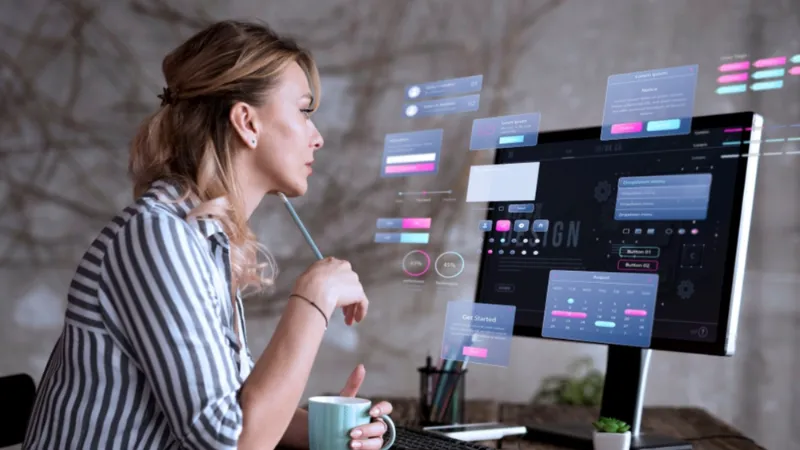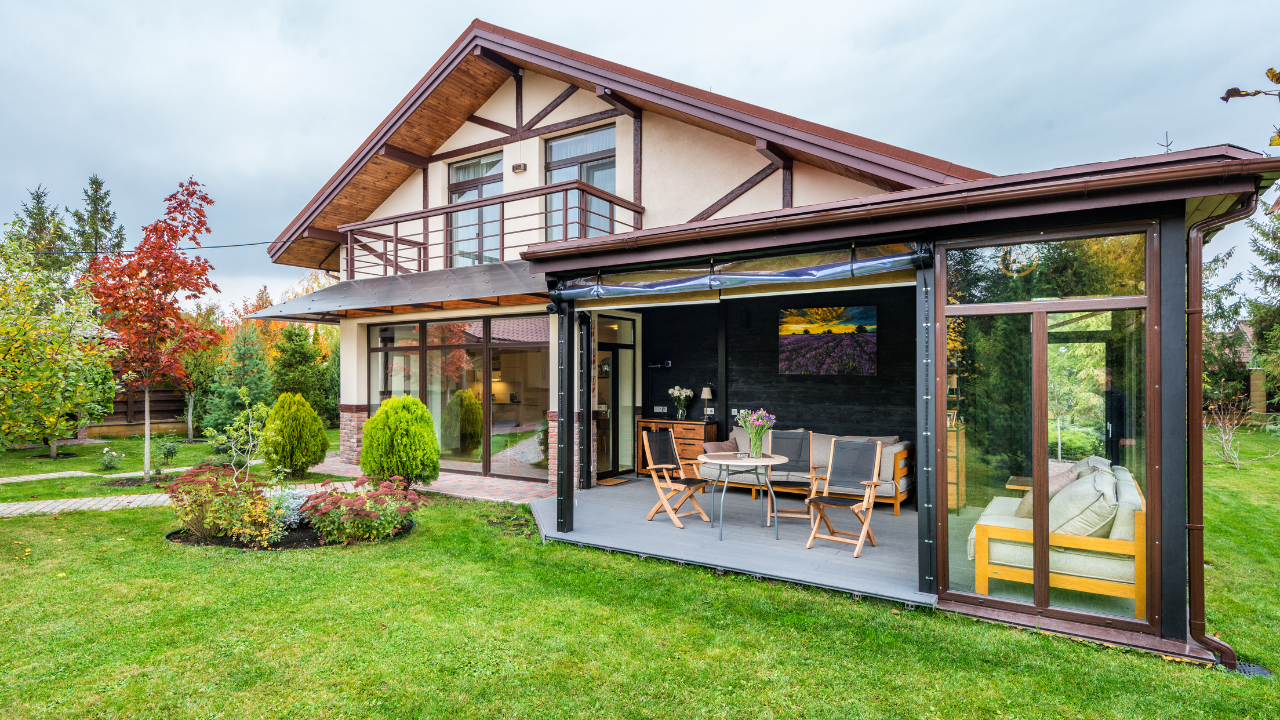The Future of PropTech: How AI Interior Design Startups Are Transforming Real Estate and Home Renovation Markets
Sep 24, 2025 | By Team SR

The PropTech revolution is reaching new heights, with the global market valued at $36.55 billion in 2024 and projected to surge to $88.37 billion by 2032, exhibiting a robust CAGR of 11.9% during the forecast period. While much of the industry's focus has traditionally centered on administrative efficiency and transaction streamlining, a new wave of innovation is emerging that prioritizes creativity, personalization, and visual transformation - with AI interior design leading this creative renaissance.
The Creative PropTech Revolution
The PropTech landscape is experiencing a fundamental shift from purely functional solutions to visually-driven platforms that enhance the emotional connection between people and spaces. According to recent industry analysis, venture capital investment in PropTech reached $15.1 billion in 2024, with a significant portion flowing toward AI-powered design and visualization technologies.
This transition represents more than just technological advancement - it's a response to changing market demographics. Millennials and Gen Z now account for 60% of home buyers, and this demographic prioritizes personalization and design flexibility in their renovation decisions. These digital natives expect intuitive, visual-first experiences that can adapt to their preferences in real-time.
The AI interior design market is experiencing explosive growth, with the sector valued at $1.82 billion in 2024 and projected to reach $12.46 billion by 2032, growing at an impressive CAGR of 27.18%. This growth is driven by several factors: the democratization of professional design tools, the need for cost-effective virtual staging solutions, and the increasing demand for personalized living spaces.
AI Interior Design: Revolutionizing Space Planning and Visualization
The impact of AI interior design extends far beyond simple room makeovers. According to industry data, 47% of interior design professionals have already integrated AI technology for virtual reality modeling, showcasing significant adoption rates across the sector. The technology's sophistication has reached a point where 72% of design firms anticipate that AI will be capable of managing complex space planning tasks effectively by 2025.
Leading platforms in this space are leveraging machine learning algorithms to analyze vast datasets of design preferences, spatial constraints, and aesthetic trends. These systems can generate multiple design concepts in minutes, simulate different lighting conditions, and even predict how furniture arrangements will affect room functionality. The precision and speed of these tools are transforming traditional design workflows, with 68% of interior design firms expected to implement AI for comprehensive project management by 2025.
One standout example is Paintit.ai, which exemplifies the new generation of AI-powered design platforms. The platform allows users to upload existing spaces or start from scratch, then scroll through curated design styles - from Scandinavian minimalism to industrial loft aesthetics - and watch their spaces transform in real-time. This approach mirrors the intuitive experience of selecting tracks in a music playlist, making professional-grade design accessible to homeowners, real estate agents, and property developers alike.
Market Transformation and Real Estate Applications
The convergence of AI design technology with real estate market needs is creating unprecedented opportunities. The global real estate virtual staging market reached $2.1 billion in 2024 and is experiencing robust growth as property professionals recognize the value of digital visualization tools.
Virtual staging powered by AI interior design technology is addressing critical market challenges. Traditional physical staging can cost thousands of dollars per property and requires weeks of coordination. AI-powered alternatives can generate photorealistic room designs in minutes, allowing real estate agents to showcase multiple design possibilities for the same space. This flexibility is particularly valuable in today's competitive market, where properties need to appeal to diverse buyer preferences.
In Europe, the home improvement market presents massive opportunities for AI-driven solutions. The European home improvement market was valued at $111.82 billion in 2024 and is estimated to reach $164.15 billion by 2033. This growth, combined with the region's aging housing stock requiring creative revitalization, creates ideal conditions for AI interior design platforms to flourish.
PropTech Investment Landscape and Growth Drivers
The investment momentum behind creative PropTech solutions reflects broader market confidence in visual-first technologies. Recent funding rounds demonstrate this trend: Mattoboard, a startup offering virtual material sampling through high-resolution 3D renderings, raised $2 million in seed funding led by Acrobator Ventures, with participation from Masco and Home Depot. This investment highlights how traditional industry players are embracing AI-powered design tools.
The appeal of these platforms extends beyond residential applications. Commercial real estate, hospitality, and retail sectors are increasingly adopting AI interior design solutions to optimize space utilization and enhance customer experiences. The technology's ability to simulate different configurations and their impacts on space functionality allows businesses to make data-driven decisions about their physical environments before committing to expensive renovations.
According to industry reports, artificial intelligence and automation attracted over $3.2 billion in venture capital within PropTech in 2024, with design and visualization tools representing a significant portion of this investment. This funding is accelerating the development of more sophisticated AI algorithms capable of understanding complex design principles, cultural preferences, and functional requirements.
European PropTech Ecosystem and Market Dynamics
Europe has emerged as a dynamic hub for PropTech innovation, with the European PropTech market projected to reach $174.5 trillion by the end of 2024. The region's diverse architectural heritage and varying cultural design preferences create unique opportunities for AI interior design platforms that can adapt to local tastes while maintaining global scalability.
The European market's sophistication is evident in adoption rates and application diversity. Countries like the UK, Germany, and France are leading in PropTech implementation, with approximately 22% of UK property technology solutions catering to buying processes and 27% focusing on property management. This established infrastructure provides a solid foundation for AI interior design tools to integrate with existing workflows.
European startups are particularly innovative in combining AI design capabilities with sustainability considerations. As the region prioritizes environmental responsibility, AI interior design platforms are incorporating features that suggest eco-friendly materials, energy-efficient layouts, and sustainable furniture options. This alignment with regulatory trends and consumer preferences positions European AI design startups for sustained growth.
Future Outlook and Market Implications
The trajectory of AI interior design within the wider PropTech realm points to continuing expansion and sophistication. As AI models become stronger at grasping subtle design principles, as well as preferences for individuals, the technology will likely become irreducible for real estate professionals, interior designers, and homeowners alike.
The democratization effect of these tools cannot be overstated. By democratizing design and allowing non-experts to obtain properties with professional capabilities, AI interior design platforms are increasing the total addressable market beyond traditional service-level designers. Now, real estate agents can provide value-added services or differentiated offerings, while homeowners are able to visualize potential renovations before committing resources. Similarly, property developers can determine optimal space utiliation based on their target demographics.
Looking forward, the additional combination of AI interior design with other PropTech unique customization offers -- whether it is IoT sensors and connected tech for analyzing space utilization, augmented-reality for immersive spatial visualization, or data-enabled solutions for any of the above, alike and unlike providers to plan working requirements differently, alongside aesthetic -- into one proposition creates additional compelling offerings. The merger of creative AI with data-driven understanding will reshape how we think of, design, and come to terms with our built environments.
The PropTech industry's evolution toward creative applications represents a maturation of the sector, moving beyond operational efficiency to enable new forms of human-space interaction. As AI interior design technology continues advancing, it will likely become a cornerstone of the modern real estate and renovation ecosystem, driving both market growth and user satisfaction in the built environment.


 Follow us
Follow us Follow us
Follow us














